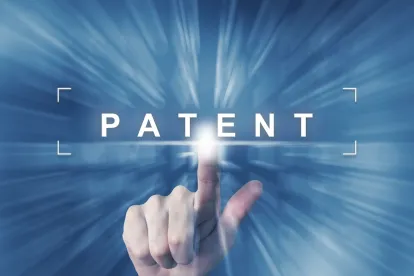The Precedential Opinion Panel (“POP”) of the U.S. Patent Trial and Appeal Board (“Board”) recently rejected a rehearing request from a petitioner where institution was denied because of the likelihood that a district court trial would occur prior to a final written decision. But the original panel, due to shifting circumstances, has ordered further briefing to consider the changed facts on the ground. In Sand Revolution II, LLC v. Continental Intermodal Group-Trucking LLC, IPR2019-01393, a divided panel exercised its discretion under 35 U.S.C. § 314(a) and declined to institute an inter partes review (“IPR”) based on parallel district court action where the jury trial was scheduled to occur prior to the Board’s final written decision. The panel relied on the Board’s earlier precedential decision in NHK Spring v. Intri-Plex Technologies, where an IPR petition, based on the same prior art and arguments already raised in the litigation and where trial was scheduled to occur prior to the Board’s final written decision, was denied under 35 U.S.C. § 314(a). The POP’s refusal to review the panel decision highlights the discretion afforded under Section 314(a), while the original panel’s order on supplemental briefing is a beacon to IPR litigants that the IPR is not final until it is final.
On August 21, 2018, Continental filed a patent infringement suit against Sand Revolution on U.S. Patent 8,944,740 (“’740”) in the Western District of Texas. The case was assigned to Judge Albright, who is building a reputation for fast tracking patent cases. Then, on July 25, 2019, Sand Revolution filed its IPR petition. The divided Board, citing NHK Spring Co., Ltd. v. Intri-Plex Techs., Inc., declined to institute pursuant to 35 U.S.C. § 314(a) due to the impending trial in the Western District of Texas. Sand Revolution subsequently filed a request for rehearing by the POP. In a per curiam order, the POP refused to hear the petition and remanded back to the original panel. The original panel, however, citing changed circumstances since the denial of institution, requested supplemental briefing on the application of NHK Spring and non-exclusive factors based on fairness and efficiency as articulated in Apple Inc. v. Fintiv, Inc., IPR2020-00019.
It seems that a continually delayed trial date factored into the panel’s decision to request supplemental briefing. Trial was initially scheduled for July 20, 2020 (or as available), but was changed by the court on at least two other occasions to November 9, 2020 (or as available). In their briefing, the Board asked the parties to address the non-exclusive factors discussed in Apple Inc. v. Fintiv, Inc., regarding when to invoke discretion under Section 314(a): (1) whether the court granted a stay or evidence exists that one may be granted if a proceeding is instituted; (2) proximity of the court’s trial date to the Board’s projected statutory deadline for a final written decision; (3) investment in the parallel proceeding by the court and the parties; (4) overlap between issues raised in the petition and in the parallel proceeding; (5) whether the petitioner and the defendant in the parallel proceeding are the same party; and (6) other circumstances that impact the Board’s exercise of discretion, including the merits.
The panel’s order on supplemental briefing serves to emphasize the fact that the IPR is not over until it is over; as long as the petition remains pending, changed circumstances can be addressed by the panel via petitions for rehearing. Petitioners will likely keep these circumstances in mind as they navigate the increase in patent cases being filed in the Western District of Texas, and other “rocket dockets.” Additionally, strategic decisions regarding venue and “rocket dockets” remain important factors for a patent owner to avoid IPR battles they would prefer to avoid. If timed well, a patent owner may be able to skirt IPR challenges—but to do so will require hard work and strategic thinking to obtain and keep a quick trial date.





 />i
/>i

